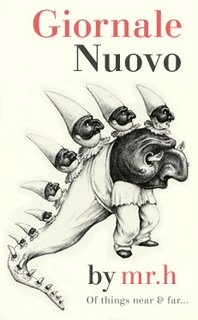Flawed Metaphysics

By Michelle Mairesse
The Marriage of Sense and Soul: Integrating Science and Religion, Random House, New York, 1998 [Hereafter referred to as Sense]
"The rise of modernity--and by 'modernity' I mean specifically the rational-industrial worldview, and roughly, the Enlightenment in general--served many useful and extraordinary purposes. We might mention: the rise of democracy; the banishing of slavery; the emergence of liberal feminism; the differentiation of art and science and morality (which I'll explain); the widespread emergence of empirical sciences, including the systems sciences and ecological sciences; an increase in average life span of almost three decades; the introduction of relativity and perspectivism in art and morals and science; the move from ethnocentric to worldcentric morality; and in general the undoing of dominator social hierarchies in numerous significant ways." [Brief, p. 69].






































































































11 Comments:
Bah.. that's the "see.. science is just as bad as religion" argument.
There is no such thing as "scientism", but it is true that in the realm of science, there is no reality save that revealed by science. That's the definition of science!
If it were to consider anything else, it wouldn't be science anymore, and it would be just a bunch of guessing.. and who needs that?
Leave the guessing out of the reality based academics.
You missed the point, Tom. Pointing out the hazards of scientism is not to say science is "bad".
Scientism restricts reality to the reach and grasp of science, it's a sort of Flat-Earth Society.
For example, gravity and electricity are not fully understood by science, yet science does not restrict reality to that limited understanding, scientism does.
No offense, but you make the very mistake common to those who see science in somewhat religious terms. Scientismists, I'd guess you'd call them.
The reality of mysteries exists before those mysteries are solved.
There will always be scientific mysteries, reality doesn't wait for science to catch up. Our consensus opinion which ratifies an agreed upon status-quo definition of reality is the scientific paradigm. Still, particle physics was a part of reality before particles were recognized.
Perhaps the only way for humans to fully grasp reality is to use all the tools available? Science is only one blade on humanity's Swiss-army knife. That's what this article is saying.
I suppose it's all semantics.
Sure.. gravity and electricity may not be "fully understood", but really, nothing is. Science offers theories that can be tested emperically, and makes predictions that can be verified.
There is always room for an exploration of "mysteries", and if somebody wants to consider possibilites outside of the scientific method, then fine. Just don't call it science, and just don't create unsubstantiated memes that science is somehow related to the ambiguity of religion.
I don't see science in religious terms. Religion is "belief" in those things that are unknowable. The scientific method, by definition, rejects those paradigms.
Just making up a word, scientism, and ascribing it to the scientific method does not mean it's a valid comparison. It is not.
In other words, don't try and change the definition of "science".
I read your comment again to make sure I understand it.
You are trying to change the definition of "science" and what the "scientific method" is.
When somebody objects to that, you label it "scientism", which is a meaningless word.
You may disagree with the definition of "science" but you would be in conflict with the vast majority of academics. You'd need to convince real scientists to agree to your new definition instead of inventing new terms that disparage the current terms.
Tom, Thanks for your response, but there seems to be a breakdown in communication here.
I don't disagree with the definition of science, whether a discipline or institution. The issue here is the point made by the article which points out that a misunderstanding of
the nature and meaning of science is blinding.
There are many insightful tomes that bridge the gap between science and religion, and even point out how Eastern philosophy presaged quantum mechanics, etc.
(see:The Tao of Physics, for example, or the The Dancing Wu Li Masters, etc.)
Look deeper, then get back to me.
The point is, science shapes our understanding, but is organic...and is often wrong, but right or wrong, reality is what it is. Belief in science as a monolith of truth is Scientism. It is a belief system. Much like any other religion.
I have no quarrel with the definition of science, just the understanding of what it means, and how that is applied.
sci·ence (sns)
n.
1.
a. The observation, identification, description, experimental investigation, and theoretical explanation of phenomena.
b. Such activities restricted to a class of natural phenomena.
c. Such activities applied to an object of inquiry or study.
2. Methodological activity, discipline, or study.
science (sns)
The investigation of natural phenomena through observation, theoretical explanation, and experimentation, or the knowledge produced by such investigation. Science makes use of the scientific method, which includes the careful observation of natural phenomena, the formulation of a hypothesis, the conducting of one or more experiments to test the hypothesis, and the drawing of a conclusion that confirms or modifies the hypothesis.
Scientism
Scientism is a philosophical position that exalts the methods of the natural sciences above all other modes of human inquiry. Scientism embraces only empiricism and reason to explain phenomena of any dimension, whether physical, social, cultural, or psychological. Drawing from the general empiricism of The Enlightenment, scientism is most closely associated with the positivism of August Comte (1798-1857) who held an extreme view of empiricism, insisting that true knowledge of the world arises only from perceptual experience. Comte criticized ungrounded speculations about phenomena that cannot be directly encountered by proper observation, analysis and experiment. Such a doctrinaire stance associated with science leads to an abuse of reason that transforms a rational philosophy of science into an irrational dogma (Hayek, 1952). It is this ideological dimension that we associate with the term scientism. Today the term is used with pejorative intent to dismiss substantive arguments that appeal to scientific authority in contexts where science might not apply. This over commitment to science can be seen in epistemological distortions and abuse of public policy.
Epistemological scientism lays claim to an exclusive approach to knowledge. Human inquiry is reduced to matters of material reality. We can know only those things that are ascertained by experimentation through application of the scientific method. And since the method is emphasized with such great importance, the scientistic tendency is to privilege the expertise of a scientific elite who can properly implement the method. But science philosopher Susan Haack (2003) contends that the so-called scientific method is largely a myth propped up by scientistic culture. There is no single method of scientific inquiry. Instead, Haack explains that scientific inquiry is contiguous with everyday empirical inquiry (p. 94). Everyday knowledge is supplemented by evolving aids that emerge throughout the process of honest inquiry. These include the cognitive tools of analogy and metaphor that help to frame the object of inquiry into familiar terms. They include mathematical models that enable the possibility of prediction and simulation. Such aids include crude, impromptu instruments that develop increasing sophistication with each iteration of a problem-solving activity. And everyday aids include social and institutional helps that extend to lay practitioners the distributed knowledge of the larger community. According to Haack, these everyday modes of inquiry open the scientific process to ordinary people and they demystify the epistemological claims of the scientistic gate keepers. (p. 98)
The abuse of scientism is most pronounced when it finds its way into public policy. A scientistic culture privileges scientific knowledge over all other ways of knowing. It uses jargon, technical language, and technical evidence in public debate as a means to exclude the laity from participation in policy formation. Despite such obvious transgressions of democracy, common citizens yield to the dictates of scientism without a fight. The norms of science abound in popular culture and the naturalized authority of scientific reasoning can lead unchecked to a malignancy of cultural norms. The most notorious example of this was seen in Nazi Germany where a noxious combination of scientism and utopianism led to the eugenics excesses of the Third Reich (Arendt, 1951). Policy can be informed by science, and the best policies take into account the best available scientific reasoning. Law makers are prudent to keep an ear open to science while resisting the rhetoric of the science industry in formulating policy. It is the role of science to serve the primary interests of the polity. But government in a free society is not obliged to serve the interests of science. Jurgen Habermas (1978, Ch 3) warns that positivism and scientism move in where the discourse of science lacks self-reflection and where the spokesmen of science exempt themselves from public scrutiny.
Martin Ryder
University of Colorado at Denver
Jesus.
Interpretations...they's all we got.
Some useful, some not.
& even then...
*burp*
I need to "look deeper"? I've been a professional engineer for over 20 years, and I have a pretty good idea of what science is, and what it is not.
If you want to term "scientism" those people who misunderstand what science really is, then fine.
Tom- You are an "engineer", yet you personalize the discussion and are unable to identify the crux. The definition of science is not at issue, and scientism (and the dilemma of scientistic views) has been an ongoing discussion among the science community for decades (centuries, actually).
I wasn't patronizing you, I merely meant to look deeper to understand what is really being said here. You are way out in left field.
Consider:
Standard dictionary definitions include the following applications of the term "scientism":
* An exaggerated trust in the efficacy of the methods of natural science applied to all areas of investigation, as in philosophy, the social sciences, and the humanities.[17]
* The belief that the social sciences are not sciences because they commonly do not hold to the somewhat stricter interpretation of scientific method used by the natural sciences.[20]
* The belief that scientific knowledge is the foundation of all knowledge and that, consequently, scientific argument should always be weighted more heavily than other forms of knowledge, particularly those which are not yet well described or justified from within the rational framework, or whose description fails to present itself in the course of a debate against a scientific argument. It can be contrasted by doctrines like historicism, which hold that there are certain "unknowable" truths. [21]
* As a form of dogma: "In essence, scientism sees science as the absolute and only justifiable access to the truth."[22]
References
1. ^ Scientism: "an exaggerated trust in the efficacy of the methods of natural science applied to all areas of investigation (as in philosophy, the social sciences , and the humanities)" definition from: Ryder, Martin. "Scientism." Encyclopedia of Science Technology and Ethics. 3rd ed. Detroit: MacMillan Reference Books, 2005.
The term is also used to pejoratively refer to "the belief that the methods of natural science, or the categories and things recognized in natural science, form the only proper elements in any philosophical or other inquiry,"[2] with a concomitant "elimination of the psychological dimensions of experience".[5][6] It thus expresses a position critical of (at least the more extreme expressions of) positivism.[7][8] (Compare: scientific imperialism.[9])
I could've handled that argument better. My apologies to all involved.
Post a Comment
Subscribe to Post Comments [Atom]
<< Home